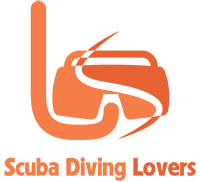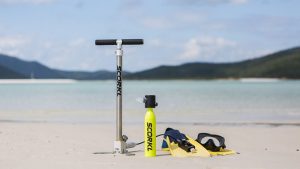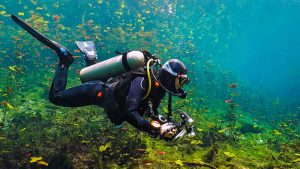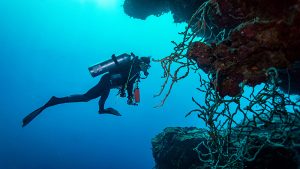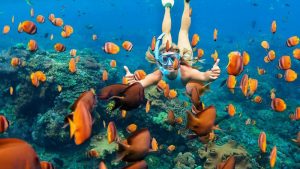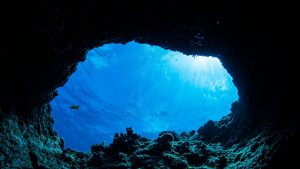To newbie water sports enthusiasts, it can be hard to tell the difference between snorkeling vs. scuba diving.
Both water sports involve exploring the underwater world. They require you to have the right gear. You can buy snorkeling and scuba diving gear on Amazon.com.
A scuba diving vacation in Florida can never be complete without a dip into the inviting turquoise blue waters. Two of the most enjoyable ways to enjoy the warm waters is through snorkeling or scuba diving.
Snorkeling vs. scuba diving
Snorkeling and scuba diving have one main thing in common. They are both fun and thrilling underwater activities that give you a chance to explore and admire the beauty of the underwater world.
However, they mainly differ in the style of execution. Between the two, which one is better? Well, this depends on what you prefer. In any case, there is no one to prevent you from taking part in both of them.
Both of these sports require you to have some gear. A wetsuit for scuba diving or snorkeling is very important. It is best for scuba diving in warm waters.
Here are the other important items that you may require. I have covered them in other articles. Just click the links to read more:
- Water shoes for snorkeling
- Drysuits for diving and kayaking
- A pontoon boat for your scuba diving platform
- Scuba diving computers
- Scuba diving watches
- Cameras to take underwater photos
So, what then are the differences between snorkeling vs. scuba diving? Here we go:
The style of execution
Snorkeling is basically swimming on the surface of the water while facing down at the underwater environment beneath you.
The only skills that you require in order to snorkel are only swimming and breathing. You do not need any special training. The equipment used is also minimal.
Note that you can snorkel when you do not know how to swim. It is possible! However, you may need to use a life jacket instead of the regular snorkeling floatation devices like belts and snorkel vests.
Scuba diving on the other hand is an extreme activity that calls for a total immersion in the water. In this case, it requires you to have special skills and gear. SCUBA is an acronym for Self Contained Underwater Breathing Apparatus.
This is the scuba tank for diving, scuba regulators for breathing and the air itself. When you scuba dive, you carry your compressed air in a tank to enable you to breathe in the deep water.
For deep water diving, you will require scuba diving certification. For snorkeling, you do not.
Equipment Required
Both snorkeling and scuba diving require a different set of equipment.
Snorkeling equipment
Snorkeling requires minimal gear that includes a mask, a snorkel, fins and a snorkel vest. A mask will allow you to see the beauty of the world beneath you.
A snorkel is a breathing tube that allows you to breathe naturally when your face is immersed in the water. Since the snorkel tube is not fully submerged in the water, it feeds you with the oxygen from the surface.
Snorkeling fins help to propel you easily by reducing the amount of drag, so that you can use less effort to move in the water.
Some people also prefer using a snorkel vest to help them with buoyancy. The vest will help you stay afloat easily if you are not a good swimmer or you are less confident while in the water.
Scuba diving equipment
In order to scuba dive, the major piece of gear that you will need is highly pressurized air in a tank. The tank will supply you with air while underwater enabling you to breathe through a regulator.
You will also require fins to propel you in the water. These can be long or short fins, split or full blade fins. They can also be open heel or full-foot in design.
A scuba diving mask will enable you to see your surroundings without letting water get to your eyes. You require a wetsuit that will regulate your body temperature to prevent hypothermia.
Some divers will also require a BCD (Buoyancy Control Device); a jacket that helps with buoyancy.
In addition to those basic equipments, divers can also to take with them extra diving accessories. Such include a dive computer, a dive torch, a dive watch, weights, gloves, boots and diving knives among others.
Exploration depth
Snorkeling only allows you to explore the underwater world down to 5 meters only. Seasoned swimmers who have mastered the skill of holding their breath can achieve such kind of a depth.
Although snorkeling lets you experience the beauty beneath the water surface, it keeps you from the beauty hidden in deeper waters.
Scuba diving conversely helps you to discover the real beauty of the massive underwater world. Scuba diving allows you to go deep down to more than 50 meters. You will be wowed at how vast and breathtaking the ocean is down there.
Breathing Technique

Snorkeling requires you to only immerse your face in the water, to prevent the snorkel that supplies you with air from being flooded with water.
If you would love to explore a little deeper, you must remove the tube from your mouth to be able to hold your breath.
If you need to take in more air, you will have to swim back near the water surface. Let the snorkel stick out of the water, blow the air out and inhale more.
Alternatively, you can use a dry snorkel designed with a mechanism that keeps water from entering in when immersed in water. The more experienced a snorkeler is, the better and longer they can hold their breath underwater.
When it comes to scuba diving, specific breathing technique that is needed. You breathe via a regulator that supplies you with air from the scuba tank.
The regulator supplies you with air each time you inhale. That way, you don’t have to hold your breath, which can be very dangerous while scuba diving.
Skills and Training
The other major difference between snorkeling and scuba diving is the skill that you need. There is also the training that you need to undergo before venturing in the water.
Snorkeling skills
For snorkeling, you do not required to undertake any special training. As long as you know how to swim, you are good to go. You can wear your gear and get into the water.
Even if you have never snorkeled before, you can learn how to within the first hour of snorkeling. Skilled swimmers can dive a little deeper while snorkeling, depending on how long they are able to hold their breath.
Scuba diving skills
Scuba diving requires you to undergo a special training before you go jumping into the water. You will be taught how to breathe right while using a tube and the air tank. You will also be equipped with safe diving skills to keep you safe while underwater
Scuba diving training is usually done in extensive programs that involve both the theory and practical trainings.
The training will cost time and money. You must be ready to invest in both. These trainings are usually conducted by recognized agencies such as PADI, NAUI, SSI and BSAC among others.
Snorkeling and scuba diving certification
Snorkeling certification
To become a qualified snorkeler, you are not required to have any certification. As long as you can be able to swim on the surface of water, you are a qualified snorkeler.
You can snorkel anywhere without anyone asking you for certification. It is basically a shallow water activity.
By the way, you can also snorkel when you do not know how to swim. You just need the right floatation device. However, you get more confidence when you know how to swim.
Scuba diving certification
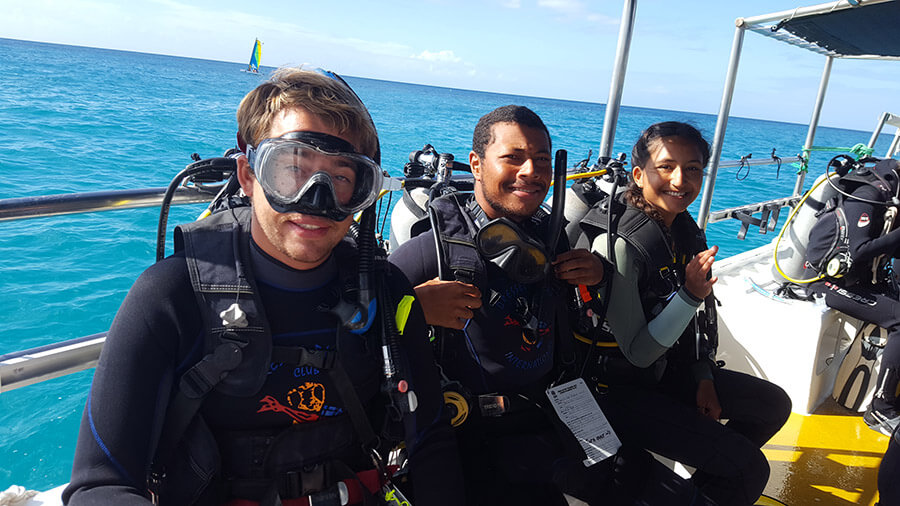
To be able to dive anywhere in the world, you must be a certified diver. You become a certified diver after you have successfully completed the scuba diving training as we have mentioned above.
After a successful completion of your training, the training agency will give you a certification card, also called a diver’s C-Card. This card becomes like a license that will allow you to dive anywhere in the world.
It will help you to buy or rent out dive equipment. All the dive sale and rental shops will require you to produce the card before they can sell or rent out any dive gear to you.
Snorkeling and scuba diving age limit
There is no age limit in snorkeling. Not even for kids!
As long as your kid is comfortable and safe in water, you can introduce them to snorkeling.
However, it is advisable to teach your little one the basics of snorkeling when they are 5 years and above in confined waters.
At this age, your kid is old enough to put on the snorkeling gear. They will also be more confident and comfortable in the water.
For scuba diving, there is a specific age that kids must attain in order to be enrolled for the training.
Most of the diving agencies have a minimum age requirement of 10 years. Between the age of ten to fourteen years, a diving student will only be allowed to dive with an instructor and he/she can only dive down to 40 feet.
At the age of fifteen, they are fully certified as divers. They can then dive deeper alone or in the company of fellow divers.
Reason for snorkeling or scuba diving
Although both snorkeling and scuba diving are mostly done for recreational purposes, the purposes tend to differ.
Snorkeling typically allows you to observe various fish species, algae, coral reef and other marine plants.
In some other cases, snorkeling can be done together with some underwater sports such as underwater hockey. It can also be combined with some fishing styles such as spear fishing.
The major recreational purposes for scuba diving include exploring shipwrecks and caves, ice diving and deep-water spearfishing.
It can also be done for other professional purposes such as underwater welding, offshore construction, civil engineering and for military purposes.
How long you can last underwater
The duration you last underwater while snorkeling depends on how long your snorkel can supply you with air.
If you are floating just beneath the surface, you can last in the water for as long as you would want.
If you choose to go deeper, the duration will depend on how long you are able to hold your breath.
Scuba diving allows you to stay longer in the water since you have a continuous supply of air. There is no need to hold your breath.
However, as much as you are supplied with air, other factors can limit your underwater duration. Such include the decompression limits, the depths (the deeper you go the faster you will run out of air) and other emergency factors.
Scuba diving and snorkeling dangers and risks
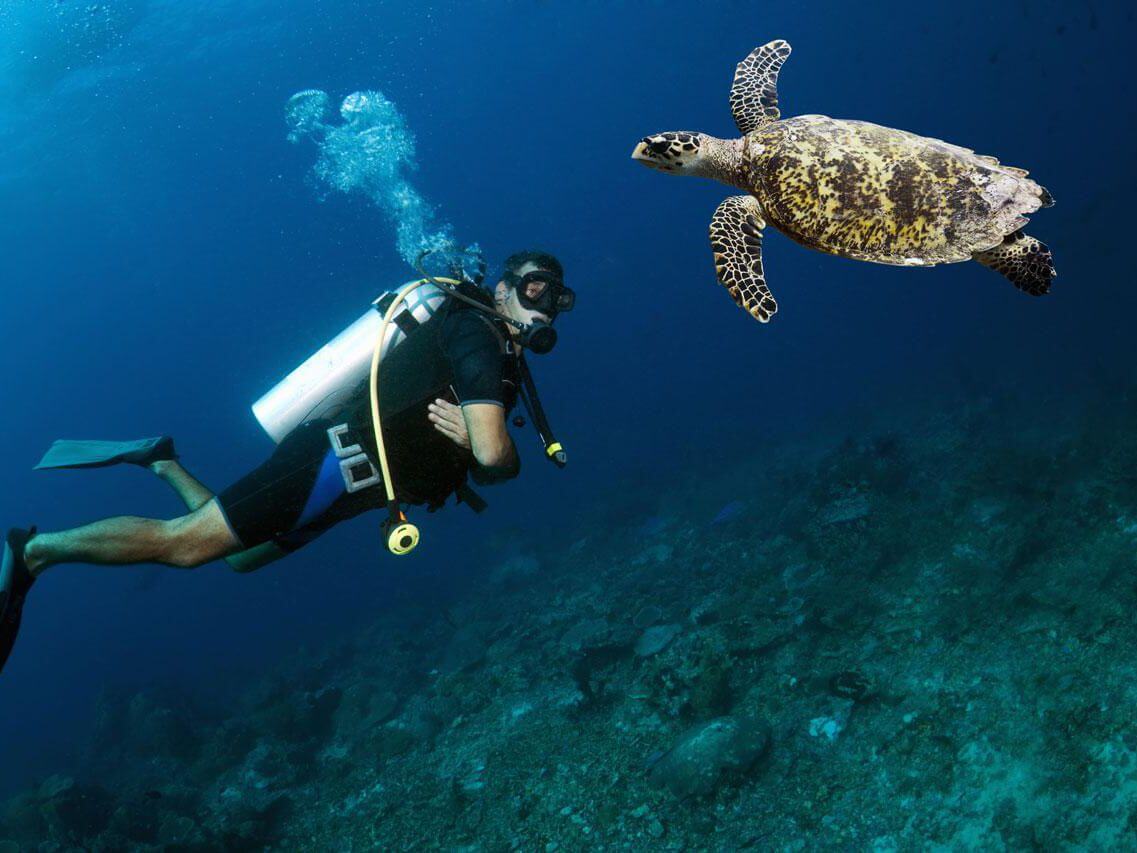
Snorkeling dangers
Snorkeling is a relatively low risk activity. The main risks with snorkeling include jelly stings and being scrapped by rocks and corals. Wear snorkeling water shoes to avoid these.
You can also suffer from sunburns if you stay for too long near the water surface. You can however protect yourself from this by wearing a sunscreen before getting in the water.
The only major danger while snorkeling is when a jet ski or a motorized boat is unable to spot you. This is rare though and snorkeling vests have reflective colors.
Scuba diving dangers
Unlike snorkeling, scuba diving comes with higher risks and more dangers. This is especially true when it is done in the wrong way.
The biggest risk is when your gear malfunctions when you are very deep in the water. If this happens, it can lead to drowning. You can also run into dangerous sea creatures or get in the way of a boat.
Being exposed to cold water for far too long can lead to hypothermia.
Snorkeling and scuba diving health risks
There are no major health risks associated with snorkeling. The major health risk as mentioned earlier is suffering from sunburns. This is common when you stay too long on the water surface. The other possible health risks include getting into contact with a poisonous coral, hyperventilation and dehydration.
Scuba diving on the other hand exposes you to some serious health problems. They most come from breathing in compressed air.
They include negative health effects such as decompression sickness, oxygen toxicity and nitrogen narcosis among others.
Snorkeling and scuba diving limitations
There are a few limitations especially on matters of health. Anyone can snorkel but not everyone can scuba dive.
A pregnant woman can go for snorkeling. However, she cannot go for scuba diving especially if the pregnancy is after the first trimester.
Before diving, it is recommended to consult a doctor if you are pregnant, have high blood pressure, diabetes or any other condition.
Conclusion
These are just a few of the main differences between snorkeling vs. scuba diving. There could be many more. However, with these, if you are a newbie water sports enthusiasts, you can be able to gauge what is best for you.
Choose what suits you, as long as you get in the water!
